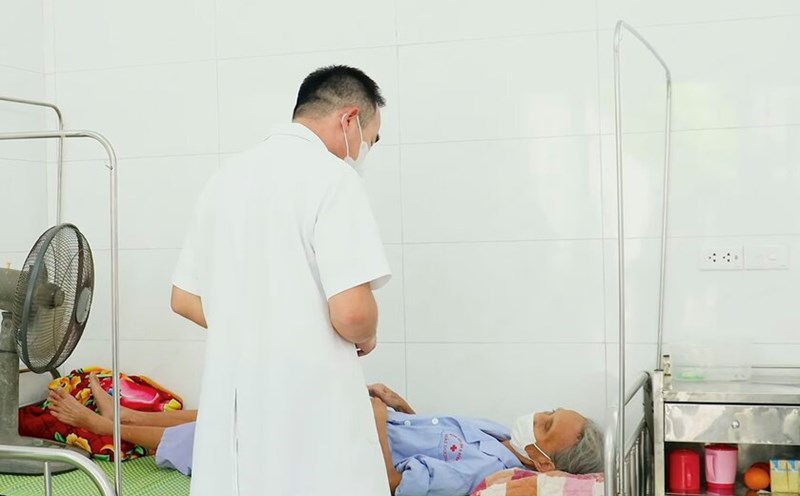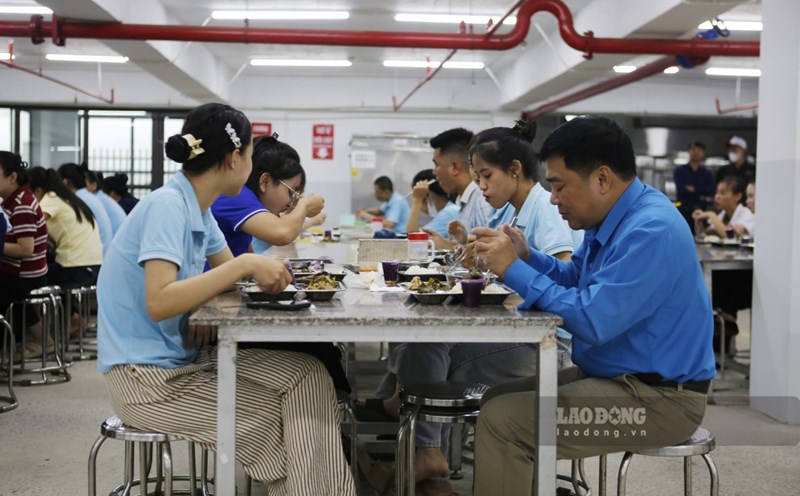Thong Nhat Hospital has just received and successfully handled a rare case of liver abscess caused by a foreign object in the digestive tract. The patient was Mr. N.T.H (58 years old, Bay Hien ward, Ho Chi Minh City), admitted to the hospital with prolonged abdominal pain, accompanied by many complex underlying diseases.
According to medical records, about a month before being admitted to the hospital, the patient often had abdominal pain around the navel with vomiting 2-3 times/day and arbitrarily took painkillers but did not improve. When admitted to Thong Nhat Hospital, the patient was recorded to have a history of high blood pressure, diabetes, obesity and abdominal infections.
The results of the imaging diagnosis (CT scan) showed a small piece of bone passing through the colon wall at the liver corner, hooked into the V- Congenital Depression River River River tissue, creating a 56x36mm abscess, with inflammation of the colon wall in the liver corner. This is the main cause of dangerous infections.
Doctors at Thong Nhat Hospital performed endoscopic surgery, removed the foreign object and successfully treated the abscess. Dr.CK1. Nguyen Anh Tung - Department of Anesthesia and Resuscitation Surgery, Thong Nhat Hospital said that after surgery, the patient responded to treatment, the condition gradually stabilized and was transferred to the Department of Gastroenterology for further treatment.
Dr.CK1. Le Tien Dung - Department of Gastroenterology, Thong Nhat Hospital, Ho Chi Minh City added that the patient's infection symptoms have improved significantly, liver and kidney function has gradually stabilized, and health has recovered well.
Doctors recommend that when eating, you should pay special attention to avoid letting bones, especially fish bones, get into the digestive tract, because it can cause serious complications, even endangering life. In addition, when there are symptoms of prolonged abdominal pain, patients need to go to the hospital for early examination, should not arbitrarily take medicine at home to avoid late hospitalization, making treatment difficult and increasing the risk of complications.











